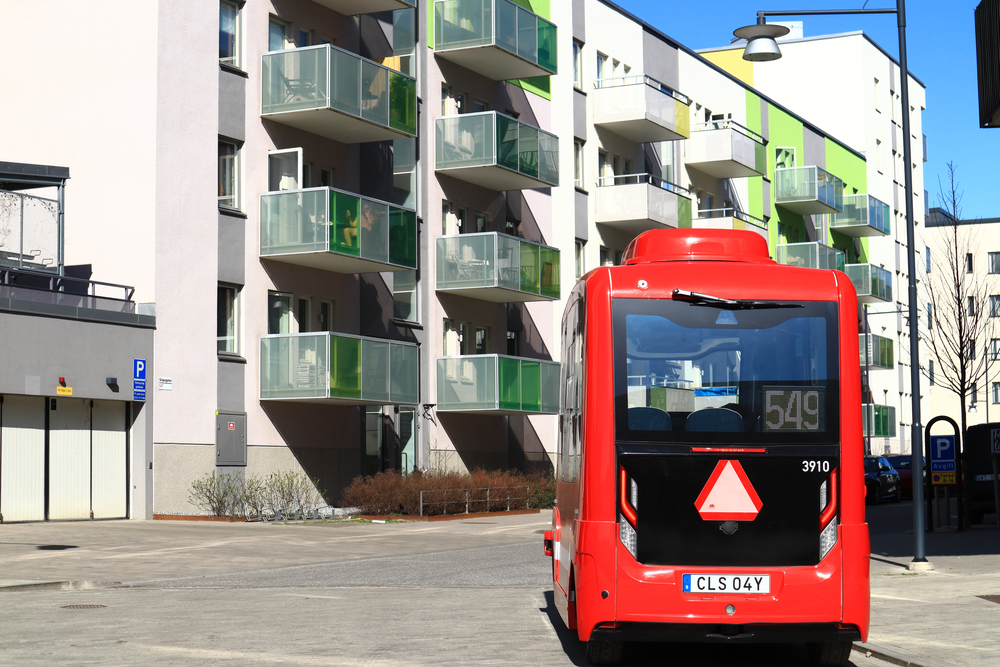UK’s first self-driving buses launch on public roads

[ad_1]
The post UK’s first self-driving buses launch on public roads appeared first on TD (Travel Daily Media) Travel Daily.


For the first time, self-driving buses will be entering service on UK roads, promising a safer, more efficient, and more sustainable future for public transit. Autonomous Bus Technology Ltd., the leading provider of autonomous vehicle technology in the country, is thrilled to announce the successful launch of the UK’s first self-driving buses. This groundbreaking initiative positions the UK at the vanguard of a public transportation revolution, demonstrating our commitment to fostering innovation, sustainability, and safety.
The self-driving buses, equipped with the latest AI technology and sophisticated sensor systems, have undergone rigorous testing and met stringent safety standards. They are designed to navigate complex urban environments, adhere to traffic laws, and prioritise passenger safety. This service will initially be rolled out in controlled, pre-determined routes with dedicated operators on board, ensuring a smooth transition and building public trust.
In addition to enhancing safety, these autonomous buses are expected to drastically reduce congestion and carbon emissions. As an added benefit, the buses will run around the clock, providing reliable, consistent, and efficient service for all riders.
- Safety:It’s estimated that autonomous vehicles could reduce traffic accidents by up to 90%, as 94% of accidents are due to human error, according to the National Highway Traffic Safety Administration (NHTSA).
- Efficiency and Traffic:Autonomous vehicles, including buses, have the potential to reduce congestion and improve traffic efficiency. A study by the University of Illinois found that even a small proportion of autonomous vehicles could have a significant impact in reducing traffic waves and improving fuel efficiency.
- Emissions:According to a study published in Nature Energy, autonomous electric vehicles could reduce emissions by up to 80% by 2050.
- Adoption:Analysts predict a significant rise in autonomous vehicle adoption over the next decade. According to Allied Market Research, the global autonomous vehicle market was valued at $54.23 billion in 2019, and is projected to reach $556.67 billion by 2026, growing at a CAGR of 39.47% from 2019 to 2026.
- Public Perception:A survey conducted by Pew Research in 2021 found mixed feelings toward self-driving vehicles in general. While 48% of U.S. adults said they would ride in a self-driving car, 21% said they would not, and 31% were unsure
Alfio Capicollo, CEO yoursydneymate said: “I’m both intrigued and impressed by the introduction of self-driving buses on UK roads. This step toward more sustainable and efficient public transportation mirrors a global trend in urban innovation and could serve as an inspiration for cities around the world. The potential benefits of autonomous public transportation are plentiful – from reducing congestion and carbon emissions to increasing safety and providing round-the-clock service. As a platform that aims to enhance city experiences, we’re excited about these developments and what they could mean for the future of urban living.
Yet, the successful implementation of such technology requires careful planning and public acceptance. Navigating complex urban environments autonomously is a challenging task, and ensuring public trust in these systems is paramount. Thus, the upcoming period will be crucial in observing how these autonomous buses perform and are received by the UK public. We commend Autonomous Bus Technology Ltd. on this landmark achievement and look forward to seeing the impact of this initiative on the UK’s urban transportation landscape.”
The post UK’s first self-driving buses launch on public roads appeared first on Travel Daily.
[ad_2]
Source link






